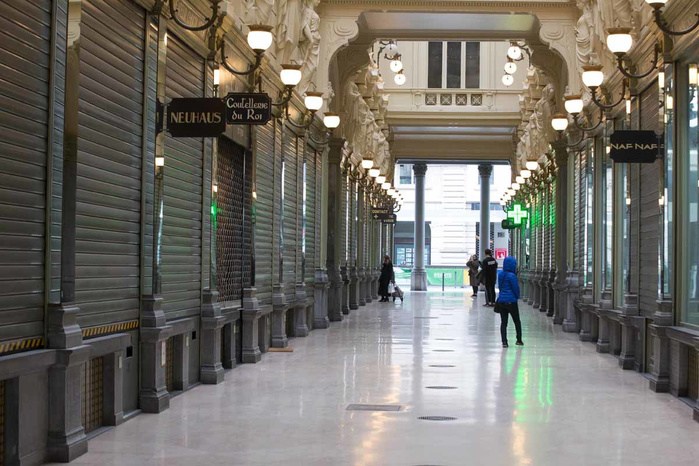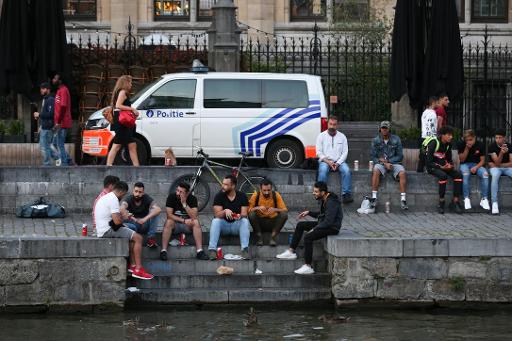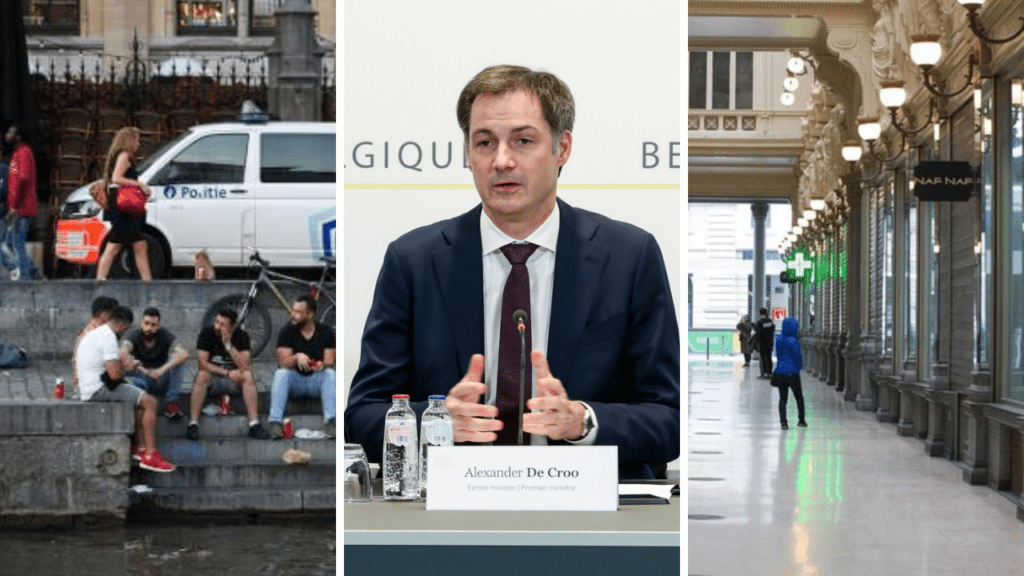Belgium's latest measures may be similar to the ones introduced during the "strict lockdown" in October, but it's important to keep in mind that this isn't necessarily the hard lockdown experts were calling for.
In fact, according to virologist and member of the GEMS expert group Steven Van Gucht, a lockdown would be far more drastic.
“We have to remember that a hard lockdown is incredibly drastic and that its impact would also be huge,” Van Gucht told The Brussels Times.
A hard lockdown would, in all likelihood, mean:
- A stay-at-home order,
- Shops closed,
- Outdoor meetings no longer allowed,
- No more youth camps or extra-curricular activities for schoolchildren,
- Even stricter work from home rules, leaving some unable to work.
That's not what we have.
“If we were to go for a hard lockdown like that, we would see more and faster results, and we would see the numbers drop more quickly,” Van Gucht said, pointing to Ireland and Portugal, which both saw a very fast drop after implementing strict measures recently.
For the full interview, see here.
So, what do you think of yesterday's announcement now that it finally arrived?
Let @johnstonjules know on Twitter.
BUT WAIT, one last thing: Want news from The Brussels Times in your inbox every morning? Sign up for The Recap, a free daily newsletter launching later this month containing all the stories you need to know from the day before. It goes great with your morning coffee.
Belgium in Brief is a free daily roundup of the top stories to get you through your lunch break conversations. To receive it straight to your inbox every day, sign up below:
1. Cheat Sheet: The ‘Easter pause’ rules
Less than a month after Belgium officially relaxed some coronavirus fighting measures, the country is entering a four-week period with new measures – or the “Easter pause” as Prime Minister Alexander De Croo called it during a press conference on Wednesday. Read more.
2. Anger and disappointment: Belgium reacts to the ‘Easter pause’

On Wednesday, the Belgian government announced an Easter ‘pause’, which will go into effect from Saturday evening 27 March, and see new restrictions imposed across several sectors for at least four weeks.
From the Belgian hairdresser federation to Flemish Minister of Education Ben Weyts, here are some of the reactions to the news. Read more.
3. Easter Pause: How shopping works now
Since the announcement on Wednesday of Belgium’s ‘Easter pause,’ the rules on shopping have once again undergone an overhaul, as some “non-essential” shops move to an appointment-only system, while others get to stay open.
In the updated list, posted following the Consultative Committee meeting, Belgium’s minister for small businesses and the self-employed, David Clarinval, posted a definitive list of what is allowed for the next four weeks. Read More.
4. ‘Putting the brakes on contacts’: new rules will stabilise figures, says Van Gucht

The latest measures announced by the Consultative Committee will be enough to stabilise Belgium’s coronavirus curves again if people follow them strictly, according to virologist Steven Van Gucht.
Speaking to The Brussels Times, Van Gucht explained that even though the so-called “Easter pause” that was announced – including the closure of non-medical contact professions and schools – is not a hard lockdown, “a number of important measures” were still taken. Read More.
5. Coastal mayors and SNCB agree on plan to avoid large groups of people travelling to seaside
Belgian rail company SNCB has agreed to implement several measures including extra police patrols and alert text messages to better manage the flow of tourists to the coast.
The decision on this ‘coastal plan’ came following a consultation between the governor of West-Flanders Carl Decaluwé and several coastal mayors after almost a year of ongoing friction over a possible solution for the congested transport to the coast. Read more.
6. Belgian asylum minister rejects UK plan to return transmigrants
Sammy Mahdi (CD&V), secretary of state for migration and asylum in the federal government, has rejected a proposal by the British Home Secretary Priti Patel to turn back transmigrants who arrive in the UK from a safe European country. Read More.
7. Brussels official rejects Flemish couples’ baby name ‘because it sounds like donkey’
A Brussels city official refused to accept ‘Hannes’ as the name for a Flemish couples newborn baby boy, saying that it ‘sounds like donkey.’
Hannes, short for Johannes (or ‘John’ in English) is a popular boys name in Flanders. Read More.
Jules Johnston
The Brussels Times

